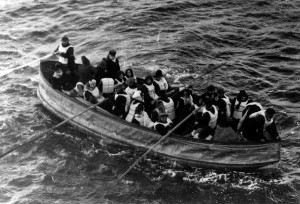Changing Morals or a Lack of Morality?
“[V]ice does not lose its nature, though it becomes ever so fashionable.”
John Wesley
 On May 30, Gallup released a poll on America’s changing views of morality.
On May 30, Gallup released a poll on America’s changing views of morality.
The poll showed a record-high in “moral acceptability” on issues like premarital sex, embryonic stem cell research, and euthanasia.
Of course, this poll should raise a number of questions. Is something right or wrong just because a large percentage of the population says so? No. Once upon a time we would have called the findings of this poll evidence of “moral decay” in America. Today we just say that Americans’ morals are shifting.
So what happens when a society decides to change morality? What happens when people increasingly call evil “good”? Well, let’s look at a few examples.

 Last week, The Chuck Colson Center for Christian Worldview devoted one of its daily “
Last week, The Chuck Colson Center for Christian Worldview devoted one of its daily “